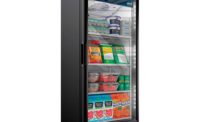In my last column, we saw how Sherrill Manufacturing re-established the flatware industry in the U.S. by reshoring production. Sherrill built a successful “Made-in-America” brand and remained price competitive with offshore rivals by selling direct to consumers (D2C). In this column, we will examine how other manufacturers are winning with a D2C business model.
Companies that are considering a D2C transformation face several challenges, such as choosing an e-commerce platform; engaging with customers; and building a reliable transaction process. But, for manufacturers that are willing to commit to a new business model, the rewards can be very attractive.
Manufacturers can achieve a consumer price below the retail price of low-cost offshore products and well above their wholesale price to retailers. For example, consider a case where the offshore manufacturing cost is $X, the wholesaler’s total cost is $1.4X, the retailer’s wholesale price is $1.5X and the retail price is $3X. If the U.S. manufacturing cost is $1.4X, the U.S. manufacturer has two choices. Sell through a retailer, receiving maybe $1.8X (an unsustainable 22 percent gross margin). Or, sell D2C for $2.8X. That’s less than the retail price of the imported product, and it’s a solid 50 percent margin.
As more U.S. companies reshore to move closer to their customers and satisfy changing consumer expectations, D2C enables competitive pricing against imports. With growing offshore concerns and tariff uncertainty, reshoring and a D2C business model make good economic sense for many companies.
One such company is YETI. Founded in 2005 by two brothers with a love for fishing, YETI manufactures coolers, insulated drinkware and other high-end outdoor gear. The company began with an indestructible cooler designed and manufactured for the serious outdoor enthusiast. By 2011, sales were overcoming manufacturing capacity, so the brothers sold a majority of the company to Cortec Group, a firm with more operational know-how, and reshored some manufacturing to the U.S. from Asia. By moving closer to customers, YETI gained more manufacturing control and cut time to market.
Now listed on the New York Stock Exchange, YETI artfully built a “cool” brand and became a leading manufacturer of outdoor products through an award-winning digital storefront and popular outdoor lifestyle videos. Through a successful D2C strategy, YETI is now popular with outdoor enthusiasts, college students and suburbanites. Today, YETI’s Tundra coolers are manufactured in the USA at facilities in Iowa and Wisconsin, as well as at a facility in the Philippines.
Another example is Made In, a manufacturer of “smartly designed cookware specifically with the home cook in mind.” Based in Austin, TX, this start-up produces cookware, kitchen tools and cutlery in the U.S. and France. Made In keeps consumers happy with free shipping, free returns, a 100-day return policy and a lifetime warranty. According to the founders, Made In’s D2C model allows them to sell premium quality cookware at a steep discount.
A third example is Casper Sleep, based in New York City. This bed-in-a-box start-up was launched in 2014 to sell U.S.-made foam mattresses D2C, at an affordable price, delivered right to the customer’s home. Casper hit $100 million in sales in less than two years and today has a $1.1 billion valuation and a growing share of the U.S. mattress market. In addition to mattresses, the company now offers pillows, bed frames and linens.
For manufacturers considering a D2C transformation, we propose sourcing or manufacturing locally to satisfy the shift in consumer expectations for faster delivery, quality and customization. Use the Reshoring Initiative’s free Total Cost of Ownership Estimator to see if reshoring makes sense for your company.

